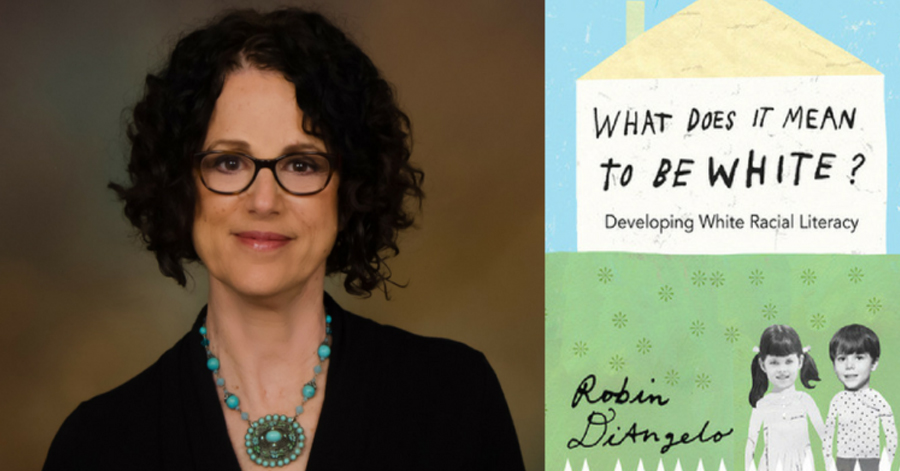Robin DiAngelo, who coined the term “white fragility” has developed a three-hour exercise geared towards getting whites to feel bad about themselves. She recently guilt-tripped her audience at the University of Texas, stressing the points that whites are irrational and need to stop becoming teachers because there are too many already. Also white people are unable to fathom the concept of racism without years of study, and people of color understand what it means to be white much better than white people themselves.
Oh, and if you find any of this insulting, possibly because she is stereotyping a diverse group of Caucasians, then that just proves her point. Whites are irrational and overly defensive.
In a 2011 journal article that introduced white fragility to the world, DiAngelo defines it as “a state in which even a minimum amount of racial stress becomes intolerable, triggering a range of defensive moves.”
DiAngelo says even as someone who leads seminars on the subject, it’s hard for her to talk about white fragility because it makes all whites uncomfortable and “very irrational.”
She warned participants from the start that the whites in the room would likely get defensive because they tend to hold “emotionally charged” opinions on racism.
Though they have “a perspective,” whites have to recognize that their knowledge is limited unless they devote “years [of] sustained study, struggle, and focus” to racism, according to DiAngelo, who says she co-designed the “Race and Social Justice Initiative Anti-Racism training” for Seattle.
The workshop was a veritable parade of diversity buzzwords. DiAngelo said her goal is “interrupting whiteness” because it is often “unmarked,” and people must “center it” in order to “expose” and remove it.
Among questions posed during two- to three-person discussion groups that DiAngelo occasionally convened: “How does whiteness manifest” in society, “What is welcoming and affirming for white people here” and “How do white people respond when the topic of racism comes up?”
During one small-group discussion, DiAngelo asked participants to define “Prejudice,” “Discrimination,” and “Institutionalized Oppression” so as to highlight how whites may misinterpret these words.
DiAngelo also asked groups to answer: “When is the first time you had a teacher of the same race[s] as you? How often did that happen? When did you first have a teacher of a different race than you?”
These are important discussion topics because they help people talk about “institutionalized oppression,” such as DiAngelo’s assertion that whites are too great a percentage of teachers in America.
Racism is embedded in the United States, she continued: “We are in a society that are not equal,” and “institutionalized oppression” can be found in religion, family and the media.
But many white people use a tactic called “white defensiveness” when they’re talking about race, which makes it hard to talk about racism, according to DiAngelo. She didn’t define the term, but one example given in a blog post is the phrase “All lives matter.”
People of color understand more than her, as a white person, how this defensive mechanism can cripple people from seeing their own racism, she said: “People of color understand what it means to be white more than I ever will.”
As with other terms in her presentation, DiAngelo didn’t define what she meant by “white space” and “black & brown space,” other than that society teaches the first is “good,” “sheltered” and “innocent,” and the second is “sketchy,” “dirty,” and “to be avoided.” (via: CollegeFix)
Maybe her next lecture should be on “how to pander to a liberal audience and get booked for lots of speeches.” Dissing white people is in. It doesn’t seem to matter that “white” represents a broad range of individuals from diverse backgrounds. Stop stereotyping us! We’re not all the same. There’s also nothing inherently wrong with having light skin, so stop trying to make “white people” feel guilty about their heritage.


